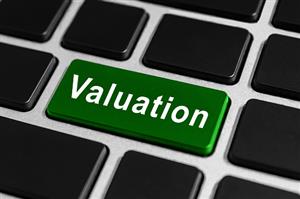
Though there is no specific date where we can look at say, "This is the start of business valuation," knowing the history surrounding the development of business appraisals and how this specialized branch grew out of accountancy and appraisal services is helpful to understanding how today's changing market conditions can affect the valuation of a company today. Business valuations can be a complicated topic, but valuation companies have grown out of the demand for better accountability and finer margins in business to maximize productivity. Here are a few short paragraphs on where valuation companies have come from, how they have developed into the complex but extremely accurate reporting systems we see today and where they may take us in the future.
A brief history of valuation companies
Though there is some debate as to the exact time period when the first valuation company or service emerged, it was undoubtedly in the middle of the 1800s as the Industrial Age saw the growth of immigration and larger companies began forming as technology advanced in communications, transportation and climate control, and made it easier for workers to perform more uniform tasks. As these companies were sold, accountants and actuaries were first called upon to study the financial documents of the day to determine their accuracy and the value of their projections. Starting on the east coast of the United States, the Massachusetts legislature passed a law in 1858 that required a commissioner to calculate the potential reserves of policies for all companies in the state that required licensing, to ensure that they were properly covered if needed.
The original methodology used was the Net Level Premium Reserve Method and the combined experience of the companies, based on the 1843 British Mortality Tables and an average interest rate of 4%. Since that time, the basic methodology has not changed, only which inputs, risk factors and range of information is used to calculate the final company valuation based on their exact circumstances. Later, as the formation of the IRS required better tax accountancy and the 1920's brought about prohibition, the tax breaks and compensation paid to the major breweries and similar businesses by the U.S. Government created the right circumstances for another viewpoint to form. This revolutionary concept was that a company was actually worth far more than simply its assets minus its liabilities or only its equity, the main calculations that were used to that point. This development brought about new concepts including the value of future profit and goodwill in calculating company valuation.
Up until the 1990s, the work of calculating business value was strongly done by accountants and actuaries, but the development of the internet and the Information Age further narrowed this specialty until business appraisers were able to strike out under their own banner. The National Association of Certified Valuators and Analysts was begun in 1990 and has organized these previously diverse valuation specialists under one united banner, which continues to this day.
As our world and markets continue to diversity, we can expect to see further specialization of business appraisal firms as time goes by. Because business valuations allow you to see exactly where your assets and liabilities are, they are vital to the continued growth of your company and will become a necessary partner for successful companies worldwide as time progresses.








